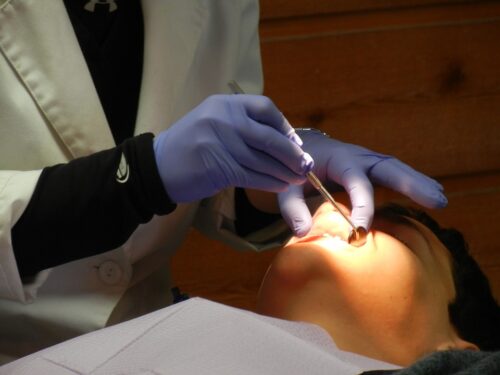Visiting the dentist is essential to keep your teeth healthy and detect any issues with your oral health. However, for some people visiting the dentist is an anxiety-provoking experience. In some cases, dental anxiety can be severe and become a phobia. The phobia of visiting the dentist is known as dentophobia and is something that affects a great many people. Whether you have a mild fear of visiting the dentist or a severe phobia, it is still essential to take care of your teeth. So, finding ways to reduce your worry and ease your dental anxiety is essential to protect your oral health.

There are many reasons people develop a fear of visiting the dentist. Perhaps they have had a negative experience in the past, or maybe they are concerned that there is something wrong with their teeth and are worried about having treatment. Whatever your reasons may be for having dental anxiety, there are ways to make visiting the dentist easier on yourself. Take a look at these tips to reduce your dental anxiety:
Find the Right Dentist
If you are not happy with your current dentist, this may be exacerbating your fear. Changing your dentist and visiting a different dental office can be really helpful. Carrying out a little research and selecting a dentist that has a calming, relaxed treatment environment can transform trips to the dentist from something you dread into a positive experience. Choosing a dentist that is highly experienced and is used to treating patients with dental anxiety is also really beneficial and will help you to feel at ease during your visits.
It is helpful to discuss your fear of attending dental exams with your dentist ahead of your visit. Letting your dentist know about your phobia will ensure that they can make your consultation as stress-free as possible.
Calm Your Mind
Staying calm is the best way to stop your dental anxiety from escalating. Reducing your stress before you even arrive at the dentist’s office will prevent anxiety from building up. Practicing breathing techniques can be helpful when trying to stay calm. It is also wise to do all that you can to avoid the dental visit from becoming stressful by ensuring you leave early enough to get to the dentist’s office and allow enough time to park up without needing to rush. Staying calm and avoiding unnecessary stress is a great way to feel in control of the situation and keep your anxiety levels low.
Bring a Friend
Bringing a friend to your dental check-up is a great way to feel more at ease. Having someone with you provides a reassuring presence and should help you to feel more relaxed about the situation. It is best to check before your visit to ensure that you can bring someone along to your consultation to help you cope with your dental anxiety.
Following these steps should help reduce the worry of visiting the dentist and ensure that your teeth get the care they deserve.
















